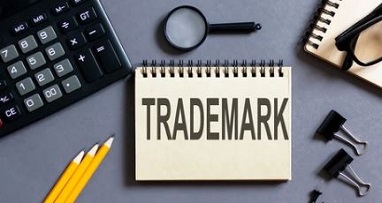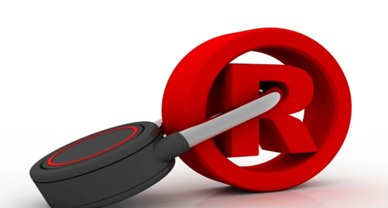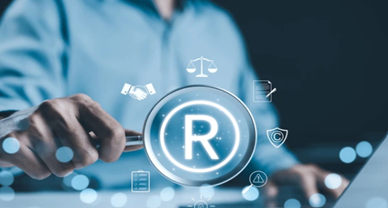Rallies Trademark Suit
Introduction
To make it easier for consumers to identify the source of a specific commodity or service, trademarks serve this goal. People can then judge the quality using the source. Consumers typically rely their purchase decisions on quality. This is why having a trademark is so crucial to the economy. A trademark communicates to the consumer the origin and calibre of the products or services.
According to Section 29 of the Trademarks Act of 1999, trademark infringement is defined as the use of a mark that is identical to or confusingly similar to the trademark in relation to the products or services for which the trademark is registered by a person who is not the registered proprietor. It is simply the unauthorised use of the exclusive rights associated with a registered trademark without the owner’s or licensees’ consent. The courts have often assumed that similarity between two marks and the types of products and services leads to confusion in the public’s perceptions. They might improperly profit from the well-earned reputation of the registered trademark. It must be demonstrated that the infringing trademark is confusingly similar to or identical to the registered trademark in order for a claim of trademark infringement against a person to be successful.
[Image Sources : Shutterstock]
The claimant, Swiss Bike Vertriebs GMBH, is an ACCELL Group subsidiary in Switzerland. On the other hand, Defendant No. 2 is Rocket Cycles Private Limited, and Defendant No. 1 is Imperial Cycle Mfg. Co. The plaintiff sued the defendants in order to get a permanent injunction barring them from using the plaintiff’s mark “Raleigh” in connection with bicycles, cycles, or bikes.
The Plaintiff is an international company that manufactures and sells bicycles, cycles, and bikes. In Europe, it owns and runs a variety of bike and cycling brands, including “RALEIGH.” The ‘RALEIGH’ mark is said to have started in Nottingham, United Kingdom, more than 125 years ago. According to reports, the company was established in 1887 under the name Raleigh Cycle Co. Ltd. The word “RALEIGH” is used globally for a variety of products, including children’s bikes, city cycles, mountain bikes, etc. The Plaintiff’s website, www.raleigh.co.uk, which was registered in 1998, as well as different social media platforms like Facebook, Telegram, LinkedIn, Twitter, YouTube, etc., are used to publicise the same.
Regarding the plaintiff’s presence in India, it is asserted that bicycles/cycles/bikes bearing the aforementioned mark were brought into India for the first time in 1910. Sen-Raleigh Cycle Factory, Asansol (West Bengal), first produced bicycle products in Siliguri, India, in the late 1920s and early 1930s, and they were marketed under the name “SEN-RALEIGH.” The Plaintiff then started using the mark “RALEIGH” and its many versions in India in 1939 through its predecessors in title.
The Plaintiff and M/s Naren International (“hereinafter, Indian Licensee”), a business based in Ludhiana, Punjab, are said to have entered into a distributorship and licence agreement as of 2012 for the exclusive manufacturing, importing, selling, and distribution of “RALEIGH” bicycle products in India. The plaint includes information on the registrations for the aforementioned mark, which are also registered trademarks in India. The first Defendant is a partnership business that sells bicycles and bicycle parts. Defendant No. 2 is a legally registered firm in India that manufactures and supplies bicycles and bicycle parts. Both of these organisations are situated in Ludhiana, Punjab, and are managed by the same group of individuals. The Defendants are engaged in the manufacturing and selling of bicycles, city bikes, etc. under the mark ‘RALLIES’.
Because the Defendants’ mark is phonetically similar to the Plaintiff’s mark, “RALEIGH,” the Plaintiff claims that the Defendants’ use of the mark “RALLIES” violates both the Plaintiff’s statutory and common law rights. The plaintiff further asserts that the Defendants are plagiarising not just the mark but also numerous other characteristics, including the colour scheme utilised on the bikes, pictures of the Plaintiff’s bicycles, and even the Plaintiff’s promotional poster. The website of the defendants also hosts the aforementioned poster. The Defendants further claim that their bicycles are made in the United Kingdom. Thus, the case of the Plaintiff is that there is bound to be confusion between the two marks as the products and business of the parties are identical. Hence, an ad-interim injunction is sought.
In its order dated November 29, a single-judge bench of Justice Prathiba Singh granted a “interim injunction” in favour of Swiss Bike Vertriebs GMBH, a subsidiary of the ACCELL Group, and directed that “Defendants shall cease manufacturing and advertising in physical shops and through online platforms, including e-commerce platforms, of all such goods mentioned above, under the mark ‘RALLIES’ or any other mark which is identical/deceptively similar mark to the registered mark.” The defendants Imperial Cycle Mfg. Co. and Rocket Cycles Private Limited, however, were given until November 15, 2023, by the top court, to dispose of their existing shares. However, the court made it plain that no new production of goods using the “RALLIES” mark will be permitted beyond the specified date. “After the said date, none of the products under the mark ‘RALLIES’ shall be made available in the physical stores or on the e-commerce platforms. The defendants shall also shut down their website i.e., http://www.ralliesbikes.com within one week from today,” the court said.
Conclusion
Due to the phonetic similarity between “RALLIES” and “RALEIGH,” the Swiss firm asserted that the use of the “RALLIES” mark by the Ludhiana companies violates their statutory and common law rights. The defendants, they argued, were not just “just copying the mark,” but also a number of other characteristics, including the colour scheme utilised on the bikes, pictures of Raleigh bicycles, and even their promotional poster. They stated, “The aforementioned poster is likewise available on the defendants’ website.” According to the business, “there is sure to be confusion between the two marks given the parties’ products and business are identical.” According to the corporation, bicycles, cycles, and bikes with the aforementioned brand were imported into India for the first time in 1910, per news reports. Sen-Raleigh Cycle Factory, Asansol (West Bengal), first produced bicycle products in Siliguri, India, in the late 1920s and early 1930s, and they were marketed under the name “SEN-RALEIGH.” The corporation started using the word “RALEIGH” and its various versions in 1939. In order to “exclusively manufacture, import, sell, and distribute ‘RALEIGH’ bicycle products in India,” the Swiss firm and its Indian licensee M/s Naren International, based in Ludhiana, Punjab, entered into a distributorship and licence agreement in 2012.
Author: Tanya Saraswat, in case of any queries please contact/write back to us at support@ipandlegalfilings.com or IP & Legal Filing.
References
- Express News Service, Delhi HC restrains Ludhiana-based firms from making ‘rallies’ bicycles in trademark infringement case The Indian Express (2022), https://indianexpress.com/article/cities/delhi/delhi-hc-rallies-bicycles-trademark-infringement-case-8303755/ (last visited Jan 22, 2023).
- Nupur Thapliyal, Delhi High Court halts manufacture of ‘rallies’ bicycles by Ludhiana firms in trademark infringement suit by Accell Group subsidiary Live Law (2022), https://www.livelaw.in/news-updates/delhi-high-court-blocks-manufacturing-rallies-bicycles-trademark-infringement-suit-raleigh-bikes-producer-215628 (last visited Jan 22, 2023).



